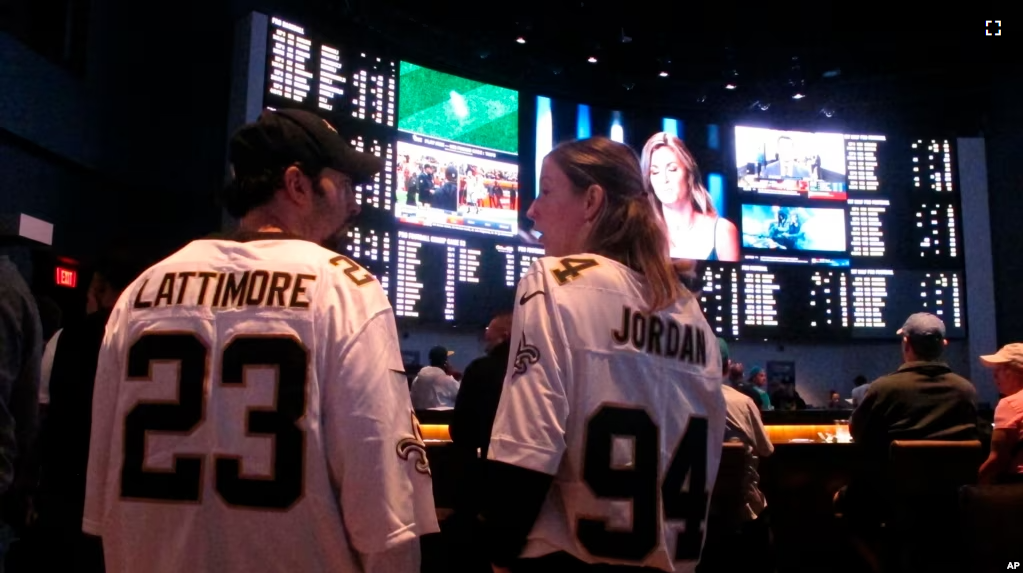People in the American state of Kentucky will be able to legally bet on sporting events for the first time in September. When they do, they also help to pay for the first-ever state program to help people with gambling problems.
Five years ago, the U.S. Supreme Court cleared the way for legalized sports betting. Almost three-fourths of U.S. states have since permitted sports betting but support for problem gambling services has been limited. Now, more states like Kentucky are requiring at least some sports gambling money to go toward helping addicted gamblers.
Research shows that younger, higher-educated men are among the most likely to bet on sports. Technology has made gambling much easier. In many states, people can now bet on smartphone apps, 24 hours a day. People can bet not only on the winners of games but on all sorts of events that happen during the game.
For the last five years, legal sports betting brought in $3 billion in taxes for local and state governments. However, the states spent little on problem gambling services.
In 2022, the state of Massachusetts budgeted $10 million for problem gambling services. And nine other states did not spend any. Most of the money from gambling went toward services like telephone helplines, counseling, and public awareness campaigns.
The federal government, which spends billions of dollars on substance abuse prevention and treatment, provides nothing for gambling problems.
Kentucky is projected to spend about $575,000 in its first year on gambling problems.
Michael R. Stone is the director of the nonprofit Kentucky Council on Problem Gambling. He said the amount of money is a good start, but “we’ve only got five certified gambling counselors in the state right now, and we’re going to need probably five times that many…”
As of a year ago, 15 states and the District of Columbia had laws requiring some of the money from sports betting to go toward problem gambling services. But another 15 states did not.
Since then, seven more states have either launched sports betting or passed laws to do so. All of those have required part of their sports betting money to go to problem gambling services, said Rachel Volberg. She is a researcher at the University of Massachusetts-Amhurst.
I’m Dan Novak.
Dan Novak adapted this story for VOA Learning English based on reporting by The Associated Press.
_________________________________________________
Words in This Story
bet — n. an agreement in which people try to guess what will happen and the person who guesses wrong has to give something to the person who guesses right
gamble — v. to play a game in which you can win or lose money or possessions
addicted — adj. having an unusually great interest in something or a need to do or have something
counseling — n. advice and support that is given to people to help them deal with problems, make important decisions, etc.
certify — v. to say officially that something is true, correct, or genuine
